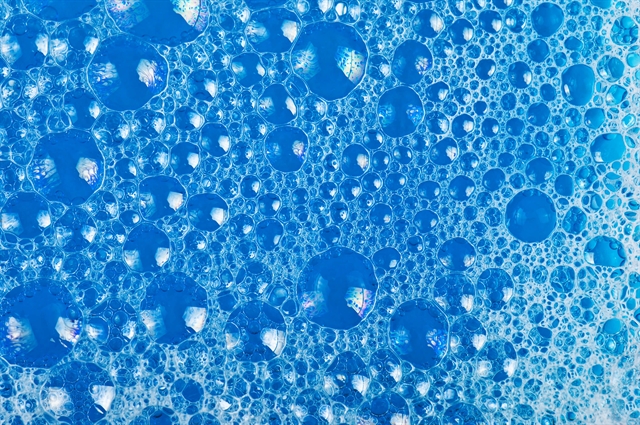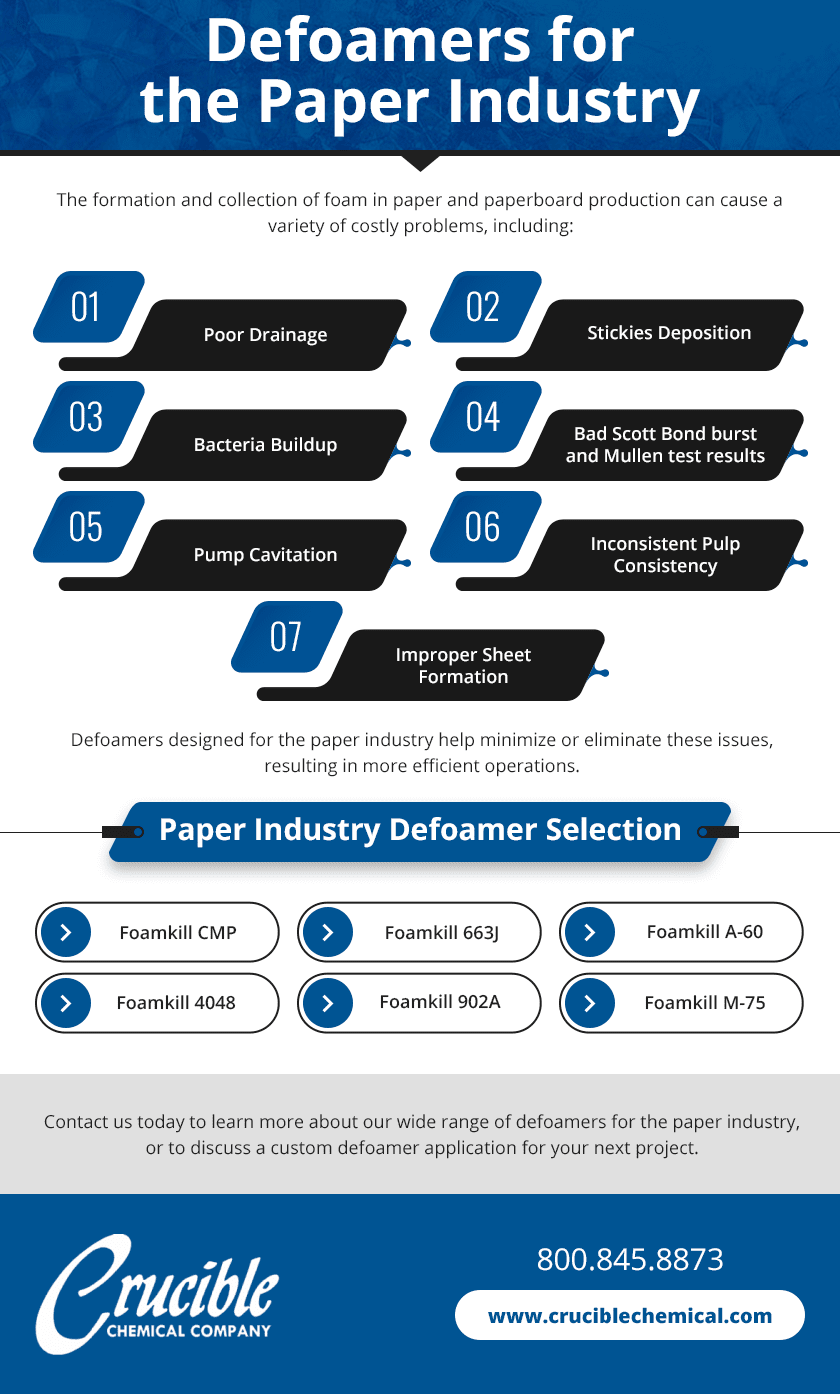How Defoamers Improve Product Quality and Reduce Waste in Production
How Defoamers Improve Product Quality and Reduce Waste in Production
Blog Article
The Function of Defoamers in Enhancing Product Top Quality and Performance
Defoamers offer as important additives that alleviate this concern, ensuring smoother production process while improving the visual and useful qualities of the final products. The option of the proper defoamer can be essential to achieving optimal results, raising essential concerns regarding formula compatibility and efficiency metrics that warrant additional expedition.
Comprehending Defoamers
Recognizing the duty of defoamers is essential for maintaining product quality throughout numerous sectors. Defoamers are chemical ingredients made to protect against the development and minimize of foam in fluid systems, which can detrimentally affect processes such as mixing, loading, and surface area stress. Lathering can result in inefficiencies, product issues, and endangered visual charm, making defoamers an important element in manufacturing procedures.
In commercial applications, defoamers assist to enhance item uniformity and stability. For example, in the paint and coatings sector, foam can conflict with the application process and the final coating. In a similar way, in food and beverage manufacturing, extreme foam can hinder bottling and product packaging performance (defoamers). The reliable usage of defoamers not only makes certain smoother production procedures however also adds to exceptional item performance.
Furthermore, the option and formula of a defoamer have to line up with details application demands, such as compatibility with various other ingredients, efficiency under differing temperature and pH problems, and potential regulative constraints. Eventually, recognizing defoamers' functions and their value in various solutions is essential for enhancing manufacturing and guaranteeing the best final result.
Kinds Of Defoamers
Defoamers can be classified right into several types based on their structure and device of action. The primary types include silicone-based, non-silicone organic, and not natural defoamers.
Silicone-based defoamers are among one of the most reliable, largely due to their capability to spread swiftly on the fluid surface area and disrupt foam formation. Their special chemical framework enables premium security, making them suitable for high-temperature applications and environments with varying pH levels.
Non-silicone organic defoamers, typically made up of all-natural oils or fats, are valued for their biodegradability and reduced toxicity. These are normally made use of in food and drink applications where security and ecological effect are paramount.
Inorganic defoamers, which include substances like talc or calcium carbonate, act by increasing the density of the fluid, therefore reducing foam security. They are usually made use of in commercial procedures where compatibility with other materials is not a concern.
Each type of defoamer has distinctive benefits and restrictions, permitting tailored remedies relying on the certain lathering issues come across in different applications. Understanding these distinctions is critical for maximizing performance and achieving wanted product quality.
Applications Throughout Industries
Many markets leverage defoamers to boost product quality and functional efficiency. In the food and drink market, defoamers are essential in procedures such as developing and dairy manufacturing to avoid foam formation, which can lead to inefficiencies and item variance. By regulating foam, makers can guarantee better return and a more consistent item.
In the pharmaceutical market, defoamers play a vital function in the formulation of liquid drugs, where extreme foam can restrain mixing and exact dosing. Their usage aids preserve the honesty of the formulations and promotes smoother production processes.
The paint and coatings market additionally counts on defoamers to boost the efficiency of products during application. By decreasing foam, these additives make sure a smoother coating and enhance the aesthetic top qualities of the last product.

Benefits of Utilizing Defoamers
While the application of defoamers varies across sectors, their advantages continually boost product high quality and process efficiency. One substantial benefit is the reduction of foam formation during making procedures, which can otherwise result in production hold-ups and variances in product quality. By reducing foam, defoamers allow a smoother flow of products, assisting in a lot more efficient procedures and lowering the probability of equipment breakdowns.
In addition, the use of defoamers can improve the look and structure of end products. In industries such as coverings, paints, and food handling, extreme foam can compromise the aesthetic looks and overall top quality, while the suitable defoamer application ensures a consistent finish and preferable qualities. Defoamers can add to cost financial savings by decreasing waste throughout manufacturing and enhancing the usage of raw materials.

Choosing the Right Defoamer
Selecting the right defoamer is essential for optimizing production procedures and making certain item quality. The selection of defoamer affects not only the performance of foam control yet additionally the total performance qualities of the end product. Variables to take into consideration consist of the type of application, the chemistry of the formulation, and the environmental problems under which the product will read here be made use of.
Various markets may call for certain defoamer types, such as silicone-based, organic, or polymeric defoamers. Recognizing the compatibility of the defoamer with the main ingredients is vital to prevent unfavorable responses that might jeopardize item stability. Additionally, the defoamer's performance in different temperatures and pH degrees should be evaluated to make certain constant efficiency.
Examining the defoamer in small-scale applications can supply valuable understandings right into its performance and viability. Consideration of regulative conformity, especially in food, drugs, and cosmetics, is vital in selecting a defoamer. Eventually, a thorough evaluation of these variables will cause the option of a defoamer that not redirected here only controls foam successfully but additionally improves the top quality and performance of the final item.
Verdict

In conclusion, defoamers are important additives that significantly boost item high quality and performance throughout different industries. The strategic option and application of defoamers lead to set you back savings, optimized source use, and increased consumer fulfillment.
Lathering can lead to inefficiencies, item problems, and compromised visual charm, making defoamers a crucial part in producing procedures.

Report this page